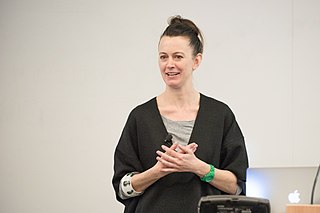A Quote by Tatiana Schlossberg
Textile manufacturers use complicated chemical and industrial processes to make clothing materials, from cotton to synthetic fibers. And while the environmental consequences aren't always clear, consumption is growing.
Related Quotes
I call upon governments to start supporting companies to use more sustainable materials in their products instead of continuing with antiquated incentives, such as import duties on synthetic materials that are in principle much higher compared with those placed on leather goods regardless of the environmental footprint.
consumption can be very harmful to the world. I'm not a big proponent of the idea that consumption makes you morally bad, but there are consequences to our acts, and those consequences are environmental degradation and the huge social inequalities that make our standard of living in the United States possible.
Recycling is more expensive for communities than it needs to be, partly because traditional recycling tries to force materials into more lifetimes than they are designed for - a complicated and messy conversion, and one that itself expends energy and resources. Very few objects of modern consumption were designed with recycling in mind. If the process is truly to save money and materials, products must be designed from the very beginning to be recycled or even "upcycled" - a term we use to describe the return to industrial systems of materials with improved, rather than degraded, quality.
As currently written, the laws require certain manufacturers and users of such chemicals to report any and all environmental releases-either accidental or routine-to air, water, or soil. The Toxics Release Inventory is the main registry of such events, and it is available to the public through the Environmental Protection Agency. It is hardly comprehensive. Toxic emissions reported to the federal government are thought to account for only 5 percent of all chemical releases.
Casein [the main protein found in dairy], in fact, is the most 'relevant' chemical carcinogen ever identified; its cancer-producin g effects occur in animals at consumption levels close to normal-striking ly unlike cancer-causing environmental chemicals that are fed to lab animals at a few hundred or even a few thousand times their normal levels of consumption.
































